- Home
- Kal Spriggs
Valor's Calling Page 5
Valor's Calling Read online
Page 5
I wondered about those who didn't score well. Was there some kind of outcast unit where they ended up?
“Please keep that in mind as all of you train and educate yourselves. Failure in one area can rob you of those possibilities. Do not neglect one aspect of your profession. Strive to be the best that you can.” She looked around the chamber and as her eyes went over me, I felt an almost electric jolt. “Dismissed.”
***
“Listen up, plebes,” Cadet Lieutenant Webster snarled. “In the future, at the end of a ceremony, you will be expected to join in as the Cadets sing our Alma Mater.” He stalked up and down in front of us, his movements jerky. Thinking back, I remembered how the other Cadets had sung a song after dismissal. I'd just stood there awkwardly. “The Alma Mater is the heart and soul of our Regiment. You will memorize the Alma Mater. You will sing the Alma Mater with pride and you will pay proper respect to our school. Do you understand?”
“Sir, yes, sir!” We all snapped back.
He didn't seem particularly impressed. “That said, you have to earn the right to sing it. Tomorrow we will have a drill day. I have your assignments, based off of your performance through the Prep School as well as your competency examinations. Eventually we'll rotate you all through every position so that you are cross-trained in the necessary duties.”
“Now, we should finish our drills by evening, assuming none of you plebes screw anything up. If that's the case, we'll have our first regimental dinner at the dining hall. Plebes are not allowed to talk during the meal unless directly asked a question. Additionally, several personnel will be chosen from each section to serve the Regimental Officers and Staff. You will receive food trays and deliver those to the head tables. You should expect to provide service, answer questions, and do as instructed by your cadet officers.”
He stopped and looked around. “Sunday morning there will be chaplain services for those of you who want to attend. Those who don't, I will conduct additional drill instruction for those who require it... which will be all of you.”
Let's see, I thought, go to the chapel or get additional training with Cadet Lieutenant Webster, tough choice. I'd be certain to go to the chapel and I would be very surprised if anyone stuck around for the extra training.
“Sunday afternoon you will have time to set up your rooms and prepare any classwork for turn-in on Monday morning. I will conduct room inspections Monday morning at zero-five, prior to classes. If you fail your room inspection, you will be inspected again at zero-seven.” The way he said that, I got the feeling that he planned to fail all of us.
“We will have a training meeting every night after your classes. There is no excuse for missing or being late. Those of you attending some form of sports activity are required to attend the training meeting first and receive updates from me, after which time I will dismiss you.”
It almost felt like Webster had rehearsed all this or like he was going down a list. I felt exhausted listening to him, especially after such a long day. It was frustrating, too, since I'd hoped that I'd be treated just a little bit better after graduation from the Prep School.
“Additionally, cleaning the barracks is the duty of the Plebes. Even after your recognition, as Cadets Fourth Class, you'll still be expected to clean the barracks. I will conduct inspections of the heads, the recreation areas, and all public and commons areas just after I complete your room inspections. These areas will be assigned on a rotating basis, and that list will be sent to all of you before I am finished speaking.”
“Now, let me introduce Cadet Petty Officer Salter.” We all perked up at that. Salter had been one of our Cadet Instructors. To hear her voice was something of a relief after Webster.
“Plebes,” Salter's rough voice snapped. “Welcome back.”
Her gruff welcome was like a breath of fresh air. I felt myself stand straighter at it. Compared to Cadet Lieutenant Webster's dismissive hostility, her gruff tone was positively heartwarming. Salter didn’t hate us, she didn’t care enough about us as people to do that. She’d treat us fairly based on the result of our performance.
“The chow hall will not come online until tomorrow evening. Meals in the meantime are E-Rats. You can pick up yours at the end of the corridor. Cadet Lieutenant Morgan will sign each of you three of them, one for tonight, two for tomorrow,” Webster looked around at us. “That's all I have, any questions?”
No one said anything.
“Good. Dismissed.”
We broke formation and headed for our quarters. It had been a tremendously long day. I wanted nothing more than to climb onto my rack and put a pillow over my head. But if we were drilling tomorrow, then I had a lot of work to do.
It was going to be a very late night.
***
The next day was about twice as brutal as I expected. We drew our weapons sometime well before dawn. I received Private First Class Santiago Ballanco's rifle, a hero's weapon, in a ceremony similar to what had happened during Prep School. At the same time, every member of Sand Dragon Company went through the process. It was a sobering event, especially with how tired we all were.
They issued us ten magazines of ammunition. Five held training rounds, designed to hurt and incapacitate. Five held live rounds. We received several lectures on the various penalties for confusing the two. Salter and Webster both made it clear to all of us that if we ever suspected live rounds were being fired mistakenly, then we were to immediately put a halt to training.
After that, we performed what Cadet Lieutenant Webster called a “Familiarization Drill” which consisted of us rushing to our assigned positions at full speed. I'd hoped to be assigned to the fighter support. Instead I was assigned to a firing position. Our fire team leader was Cadet Third Class Trask, also of Sand Dragon. The first obstacle I ran into was that I didn't have any of my gear, not yet. So as soon as they learned that, I had to rush over to supply and draw my gear. Thankfully it was ready... but that meant I had to adjust the fit, put it all on, and rush back out to my position.
By the time I arrived, the all-clear went out. I showed up just as we were told to stand down and return to our starting location. So I jogged with the others back to the barracks area in the hot morning sun. If I'd needed any reminders that the Academy lay close to the deep desert, I didn't anymore.
No sooner had we arrived at the barracks and removed all our gear than the drill siren went off again. Doing that in the sun, with a weapon, and all my gear was more than tiring, it was exhausting. Once back at our assigned firing position, a cadet officer came along and inspected our position. He repositioned several of us and departed.
The all clear sounded. We went back to the barracks. Then the drill alarm sounded again.
By late afternoon, I was covered in dried sweat. My uniform was stained with sweat and dirt. I'd managed to eat both of my rations and I'd drained and refilled my water bladder at least four times over. We staggered back to the barracks and I was so tired that I didn't want to sit down, mostly because I didn't want to have to stand up again.
“That's it, plebes,” Webster snapped from the corridor. “Change out and clean up for dinner. Uniform and gear inspections for everyone. Dinner is in one hour. Armstrong, Takenata, Dawson, and Phillips, you're on server duty for the week.”
Oh no, I thought. The last thing I wanted to do was stand for a few more minutes, much less have to answer questions and serve food. I wanted to curl up into a ball and cry. Instead I said, “Aye, aye, sir.”
Cleaning our gear took most of that hour. I had just enough time to wash myself, get on a new uniform, and get in line to get a tray of food with the other Regimental Servers. The civilian cooks in the chow hall gave us smirks and smiles as we came through, along with loading our trays down with food to the point that my tired arms trembled.
The smell was torture. First off, there was real meat, not the vat-grown stuff that I'd had all my childhood. I hadn't realized there was a difference, really, not until I'd had the real stuff dur
ing the Academy Prep Course... and had to try to swallow the fake stuff when I went back home. Real meat smelled better, it had texture and flavor.
The butter-covered vegetables and thick, creamy mashed potatoes brought growls from my stomach. I'd choked down rations throughout the day, but compared to this, rations didn't really count as food. Nevertheless, I followed the line of servers as we stepped out of the kitchen and started up to the platform where the Regimental Officers sat. These were all Cadets First Class, Cadet Officers. Most of them ignored us. I copied the actions of my fellows and placed trays where they'd fit. To my surprise, the Cadet Officer nearest me gave me a nod of thanks and a slight smile, “Been there, Plebe Armstrong. Don't worry, you'll get food soon enough.”
“Yes, sir,” I replied and stepped back to stand at ease, like the other servers.
We stood there for a while, while the Regimental officers ate and talked. I listened with half an ear while they discussed this or that event. Most of them seemed focused on their assignments, either comparing their duties or discussing what they hoped to achieve. I didn't understand a lot of it. They used a lot of acronyms and slang.
“Plebe Armstrong,” one of the Cadets asked. She wore a rank of Cadet Commander and her name-tape read: Givens.
“Ma'am,” I straightened to attention.
“What is the maximum effective range of a ML-7 anti-air missile?” Her voice was relaxed, but the question made me break out in a sweat. That was the same type of missile that someone had tried to kill me with only fifteen days earlier.
I could feel her dark eyes locked on me as I considered the question. “Ma'am,” I said after a moment, “I don't know, but I will find out for you, ma'am.”
One of the regimental officers laughed, though whether it was at my expense or at the question, I didn't know.
“It's fourteen thousand meters,” she answered. “What types of seeker heads does an ML-7 use?”
I swallowed. Was Cadet Commander Givens messing with me... or was she involved in the attack, somehow? “Ma'am, I don't know, but I will find out for you, ma'am.”
“Infrared and active radar,” she snapped. “You can't win anything if you don't play the game, Plebe Armstrong.”
“Being a little tough on her, eh, Amy?” the cadet officer who'd given me a smile said. “This is day one, you can't expect much from Plebes today, right?”
“She's not just any plebe, Teddy,” Givens snapped. “She's the Admiral's granddaughter. And from what I understand, she's been in a firefight before... plus she was on that skimmer that got shot down around two weeks ago. By an ML-7. So if she takes this military stuff seriously, she better know some of this stuff.”
She looked back at me. “Here's an assignment for you, Plebe Armstrong. Look me up. Figure out what kinds of questions I'm going to ask you. Because I am going to ask you. And if I don't like your answers, I'll request you to be our server next week, too. And the week after that. And I'll keep grilling you until you can give me the right answers. Understand?”
“Ma'am, yes, ma'am,” I snapped.
“Good.” Cadet Commander Givens gave me a nod. Then she pushed her plate to the side and stood up. “See you tomorrow, Plebe Armstrong.”
***
Chapter Four: Setting the Example
After room inspections, I made it to my first class of the day with just enough time to find a seat. I'd been dismayed to learn that I wouldn't spend the first year with my section-mates. Instead, it seemed that they split us up for the first semester, while we took the introductory classes and selected our military track. Out of the forty others in the class, I only recognized Dawson, who at least gave me a nod as I came in. Since this one was Introduction to Military Ethics, I had hoped to be at the back, possibly where I could work on some of my other classwork. Instead, I was pretty much right in the front and center.
“Class, Attention!” One of my classmates barked as Commander Bonnadonna stepped into the classroom.
“Take your seats,” Commander Bonnadonna barked. He had an abnormally deep voice, especially at how short he was. He walked briskly to his podium. I realized pretty quickly that he had an implanted computer, because he'd dimmed the lights and brought up the display along the way, without use of a datapad or other device.
He stood near the podium, looking over the class, his hard-planed face unreadable. I took the time to study him. He was short, shorter than my father, but with broad shoulders and thick muscle. He looked like he was carved out of rock, his face grizzled and scarred. I found his dark eyes unsettling as they went across me, as if he were cataloging me like an item.
“Welcome, Plebes,” he spoke, his deep voice resonating in the classroom. “That's an interesting term, isn't it? Plebe, from pleb. The Roman term for commoners... it has become a derogatory term throughout the military culture in general. In ancient times, the Roman Legions would sometimes be called in to restore order when their plebs got out of line... an interesting fact, don't you think?”
I sort of knew who the Romans were. They'd built roads back on Earth, long before we'd gone to space. I thought I remembered them having some kind of Empire, though I couldn't remember if that had been in North America or Asia. He was talking ancient history so I didn't really see the relevance.
“Here on Century, citizenship is granted by birth, and some few of our immigrants, gaining it through renouncing their old homeworlds and swearing an oath to the Charter Council and Century,” he nodded to one of the students. “Plebe Martinez, you and your family immigrated from New Madrid in the Evistar Sector. Did you or your family find it arduous to gain citizenship here?”
We all looked over as Martinez stood, “Sir, no, sir.”
“Thank you, Miss Martinez. For the purposes of timeliness, consider these classes an open discussion, rather than a traditional lecture. Feel free to answer my questions and elaborate,” Commander Bonnadonna said. “We are going to use something of a Socratic method for instruction. I will introduce concepts, we will discuss them, and I hope that all of you will come to the correct understanding in the end.”
That left me with a headache. In my mind, a teacher should teach. We should learn the right answers so that we could solve a problem in the right way. Engineering problems didn't involve discussion, they were settled with calculations and hard numbers. There was a right answer and a wrong one.
“So,” he said, “having reviewed all of your papers and seeing where you all stand, I think we'll start with a group discussion and practical exercise.”
My eyes widened at that. We'd turned in our research papers on Friday when we reported. The ethics paper had been ten pages at a minimum. There were forty of us in the class, I didn't see how he could have reviewed all of our papers, much less all of the papers from his other classes.
“All of the examples we'll use are real world examples, though I adapt them a bit to simplify them,” Commander Bonnadonna said. “We'll start with a relatively recent one.” He brought up the scenario on the screen. “Plebe Duchan, please read it aloud.”
“Uh, yes sir,” Duchan stood. “You are a cadet detached to work with a civilian company for a broadening experience. During your time there, you uncover inconsistencies with the company's records, particularly with their military contracts. You suspect they are stealing military equipment for sale on the black market. What do you do?”
I wanted to sink into my chair. I could feel stares from around me. I was the example. I wanted to throw up. I already doubted myself enough, why did I have to be dragged back through all this? I kept my eyes forward and my mouth shut, though I felt anger at the officer for doing this to me.
“Well, anyone?” Commander Bonnadonna asked. “No one? Surely someone has a suggestion?”
Someone raised their hand, “Yes, Mister Naghi?”
“Uh, sir, possibly contact the authorities?” Naghi answered. “I guess the Enforcers, since it is a civilian company, right?”
“Technically, the civilian autho
rities would have jurisdiction over criminal wrong-doings, yes,” Commander Bonnadonna nodded, “But the military would have jurisdiction over military equipment.” He nodded at another student, “Miss Do, yes?”
I looked over to see a short plebe, clearly from the second wave of colonists, her sharply slanted eyes and straight black hair distinctive, “Shouldn't we gather more information or evidence? I mean, it just says we suspect, it doesn't say we have any proof.”
“Indeed,” Commander Bonnadonna nodded. “Without some measure of proof, it is unlikely that a cadet would be believed, especially if the company is in good standing.” He looked around, “Ah, yes, Miss Drien there in the back.”
I went cold as he said that and I couldn't help but look over my shoulder. I hadn't seen her at the back of the room. Sashi stood up, “Sir, I don't think further investigation is warranted. I think the cadet should contact the military authorities, possibly call back to the Academy. With someone in authority involved, the cadet can then have guidance on how to proceed so as to not alienate either the civilians or endanger any personnel.”
My stomach fell as she said that. I had second-guessed myself about that since I woke up in the hospital. I should have done exactly what she'd said. I should have messaged the Admiral, let her take charge. I shouldn't have looked into it myself or endangered Ted Meeks.
I agreed with her, that's what I should have done.
Yet I found my hand going up.
“Ah, yes, Miss Armstrong?” Commander Bonnadonna smiled. There was something about that smile that suggested he'd known this would happen. He had planned for it. He wanted me angry.
“Sir,” I bit out, “I think it's unfair to look back at a situation like this and judge what the person should have done without being in the moment.”

 Lost Valor
Lost Valor Valor's Stand
Valor's Stand Fenris Unchained
Fenris Unchained Stolen Valor
Stolen Valor Valor's Cost
Valor's Cost Jormungandr's Venom
Jormungandr's Venom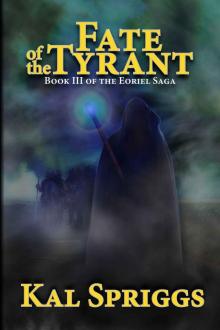 Fate of the Tyrant (The Eoriel Saga Book 3)
Fate of the Tyrant (The Eoriel Saga Book 3) Renegades: Origins
Renegades: Origins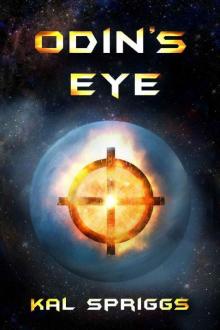 Odin's Eye
Odin's Eye Valor's Child (Valor's Children Book 1)
Valor's Child (Valor's Children Book 1) Prisoner of the Mind
Prisoner of the Mind The Shattered Empire (The Shadow Space Chronicles Book 2)
The Shattered Empire (The Shadow Space Chronicles Book 2)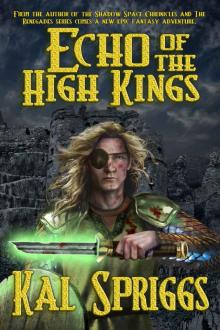 Echo of the High Kings (The Eoriel Saga Book 1)
Echo of the High Kings (The Eoriel Saga Book 1)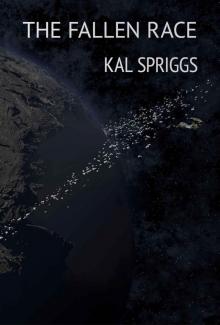 Shadow Space Chronicles 1: The Fallen Race
Shadow Space Chronicles 1: The Fallen Race The Sacred Stars (The Shadow Space Chronicles Book 4)
The Sacred Stars (The Shadow Space Chronicles Book 4) The Prodigal Emperor (The Shadow Space Chronicles Book 3)
The Prodigal Emperor (The Shadow Space Chronicles Book 3) Valor's Calling
Valor's Calling Prisoner of the Mind (Project Archon Book 1)
Prisoner of the Mind (Project Archon Book 1)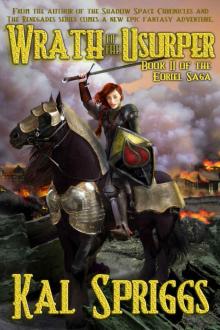 Wrath of the Usurper (The Eoriel Saga Book 2)
Wrath of the Usurper (The Eoriel Saga Book 2) The Temple of Light (The Shadow Space Chronicles Book 5)
The Temple of Light (The Shadow Space Chronicles Book 5)